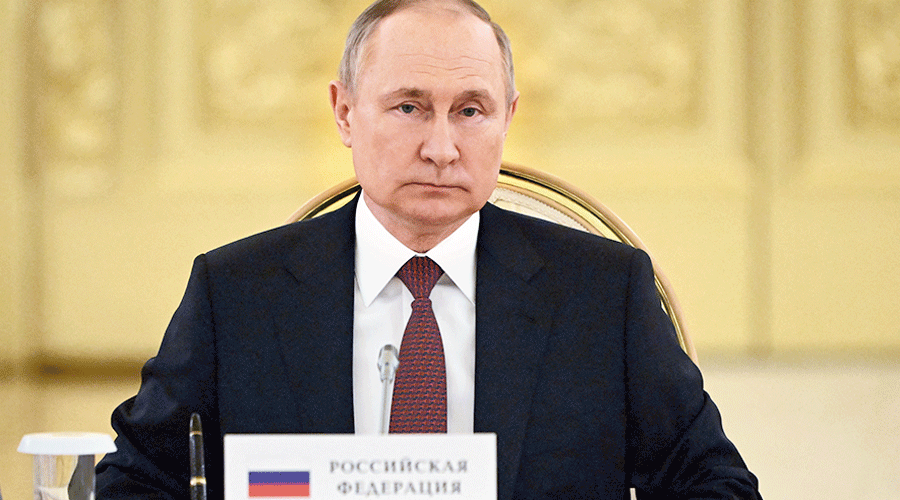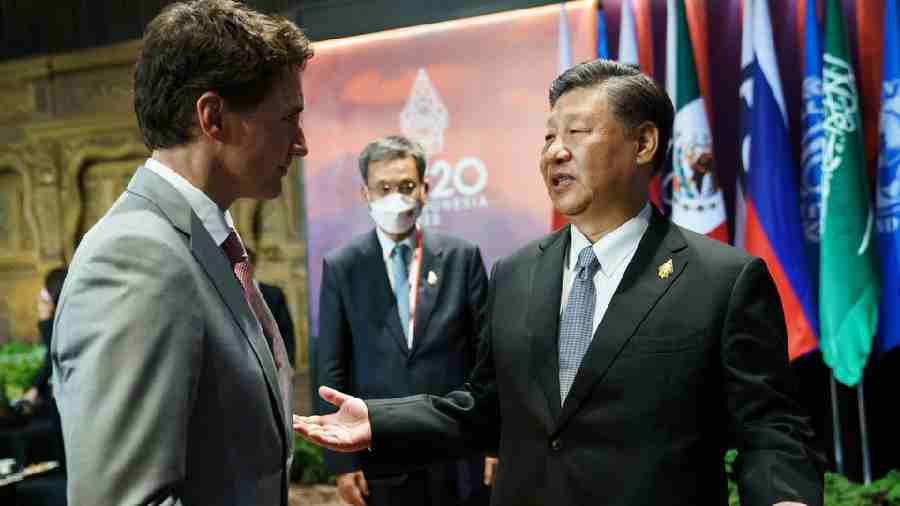The G20 Leaders’ Declaration, adopted at the summit in Bali on Wednesday ahead of the presidency of the grouping being handed over to India, conceded differences within over the war in Ukraine while condemning the Russian aggression.
Eclipsed by the war, the declaration articulated concerns over its impact on the global economy and the nuclear overhang. Russian President Vladimir Putin had given the summit a miss and his foreign minister Sergey Lavrov — who was leading Russia’s delegation — left a day early.
The declaration calls Russia the aggressor with member countries iterating their national positions adopted in the UN Security Council and General Assembly. It “deplores in the strongest terms the aggression by the Russian Federation against Ukraine and demands its complete and unconditional withdrawal from the territory of Ukraine”.
The declaration says: “Most members strongly condemned the war in Ukraine and stressed it is causing immense human suffering and exacerbating existing fragilities in the global economy — constraining growth, increasing inflation, disrupting supply chains, heightening energy and food insecurity, and elevating financial stability risks. There were other views and different assessments of the situation and sanctions. Recognising that the G20 is not the forum to resolve security issues, we acknowledge that security issues can have significant consequences for the global economy.”
Apart from India, the G20 countries that have refused to condemn Russia at various international for a include China, Brazil and host Indonesia. The text of the declaration indicates that they stuck to their respective positions during the negotiations on the document.
Alluding to Putin raising the spectre of nuclear war, the declaration asserts that “the use or threat of use of nuclear weapons is inadmissible”. Prime Minister Narendra Modi’s remarks to Putin at Samarkand on the margins of the SCO summit that “this is not the era of war’’ finds mention in the declaration in the context of resolution of crises through diplomacy and dialogue, which has been India’s stance in all conflict situations.
“The peaceful resolution of conflicts, efforts to address crises, as well as diplomacy and dialogue, are vital. Today’s era must not be of war,” the declaration states. Western countries have quoted this remark of Modi several times in recent weeks but Russia has accused the West of cherry-picking as the Prime Minister had just a week before the SCO summit praised Putin’s vision and called for greater engagement of India in the Russian far east.
In his closing remarks after the G20 presidency passed on to India, Prime Minister Modi said: “It is a proud occasion for every Indian to assume the G20 presidency. We will organise G20 meetings in different cities and states of our country. Our guests will get full experience of India’s amazing diversity, inclusive traditions and cultural richness. We wish that all of you will participate in this unique celebration in India, the ‘Mother of Democracy’. Together, we will make the G20,a catalyst for global change.”
India got the presidency on a rotation basis in which it is transferred every year to a member country. Bracing for an effort by the ruling ecosystem to project the G20 presidency as a result of Modi’s leadership, Congress media in-charge Jairam Ramesh tweeted: “G20, a grouping of 19 major economies & the European Union, was set up in 1999. Since 2008, an annual summit is held in each member country IN TURN. Each country gets a chance & India will host the summit in 2023. It’s certainly to be welcomed like similar summits held earlier.
“The Non-Aligned Summit of over 100 countries took place in New Delhi in 1983 followed by the Commonwealth Summit. The 2023 Summit will of course be milked by the world’s greatest event manager for the Lok Sabha elections a year later to distract from real issues of the people.”












